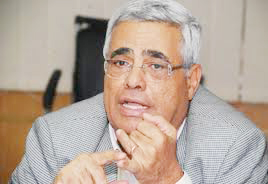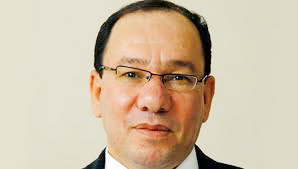As protests continue to shake the streets of a number of Egyptian cities, writers are proposing suggestions to end the current political plight by calling for the delay of the upcoming parliamentary elections and forming a new government that is allowed time until 2016 to perform its duties.
A suggestion to exit the crisis
Hassan Nafaa
Al-Masry Al-Youm newspaper
Looking at the depth of the current political crisis in Egypt, Nafaa lists a number of suggestions to end the dilemma. One of the first proposals is to delay the upcoming parliamentary elections in April to a later date. He also suggests that the president appoint a new government that is allowed efficient time to perform its duties.
Nafaa believes that all involved political groups have to give up a bit of their rigid stances. If the ruling Freedom and Justice Party (FJP) is calling the opposition to soothe the situation and stop the violence, the Islamist group should also ask the President Mohamed Morsi to act as a genuine leader for all Egyptians and promote fruitful, genuine dialogue.
If both conflicting parties manage to solve this difficult equation, the writer believes the amplifying political predicament could end. If a new cabinet is allowed time to carry out its duties until the end of the presidential term in 2016, Egypt will then have a chance to recuperate and achieve high levels of production. To conclude, Nafaa says the problem is not in the absence of creative thinking, but in the lack of true political intention to make change.
Real martyrs who have been unfairly treated twice
Wael Qandil
Al-Shorouk newspaper
Calling every person dying in the recent clashes around Egypt a “martyr” is indeed acceptable; although a handful of killed armed forces members have not been honoured in the same way. Qandil explores the issue of describing several dead in skirmishes as martyrs and ignoring, what he calls, the “real martyrs” who died in a plane crash in 1999.
He recalls a handful of Egyptian military officers dying in an aeroplane crash en route from the United States, where they were receiving training related to their jobs. Nobody cared to provide their families with financial compensation or at the very least, psychological support.
On 9 March, Egypt is supposed to celebrate the “day of the martyr”, and in light of this occasion Qandil asks Morsi why the families of the deceased officers are not listed among the martyrs of the 25 January Revolution like the Port Said football massacre victims.
He recalls that after the plane crash, the ex-presidential candidate Ahmed Shafiq was promoted to be the minister of civil aviation. Amid an atmosphere of obvious corruption, Qandil stresses on the importance of revisiting the plane crash and compensating the victims’ families, who have been struggling for nearly 14 years.




